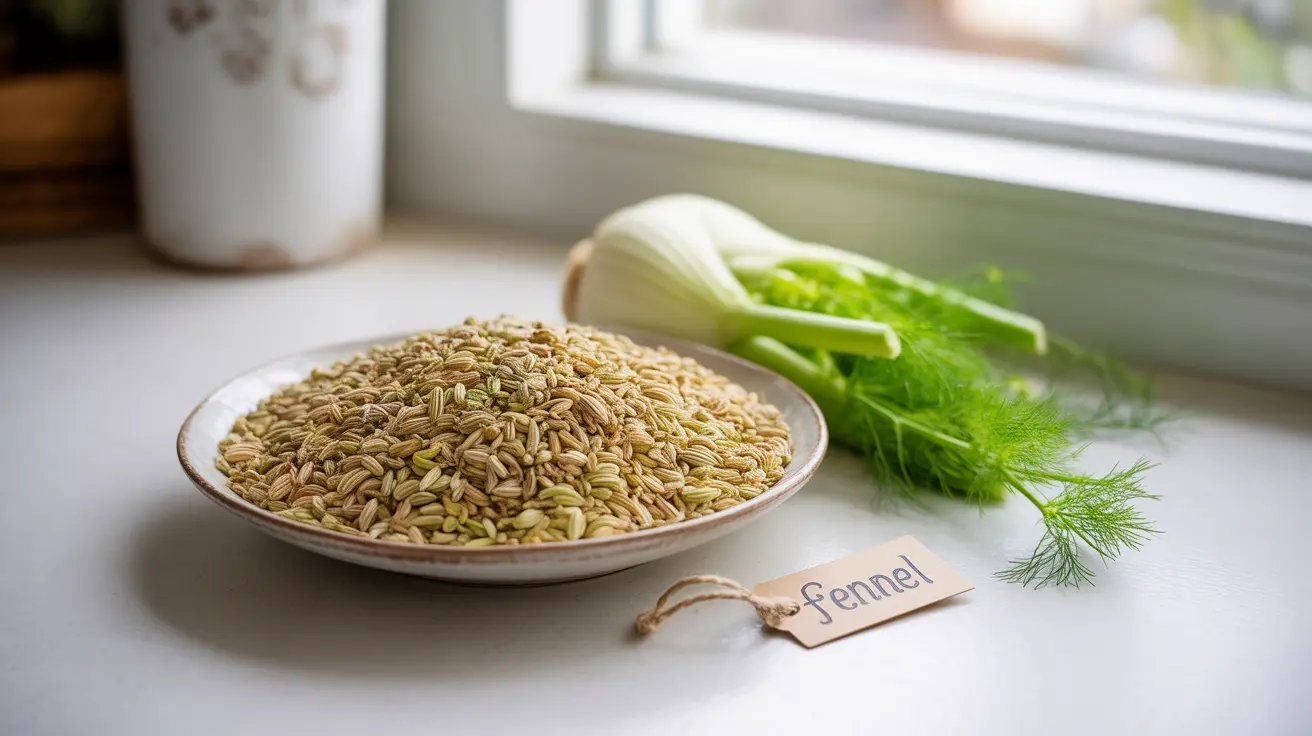Fennel seeds have been a staple in traditional medicine and culinary practices for centuries, offering a unique blend of flavor and potential health benefits. This versatile herb, with its distinctive licorice-like taste, has captured the attention of health enthusiasts and researchers alike, promising a range of possible wellness advantages.
From supporting digestive health to potentially alleviating women's health concerns, fennel seeds are more than just a culinary ingredient. In this comprehensive guide, we'll explore the nutritional profile, potential health benefits, and important considerations surrounding these remarkable seeds.
Origins and Botanical Background
Fennel (Foeniculum vulgare) is a flowering plant native to the Mediterranean region, now cultivated across Asia, North America, and Europe. Belonging to the Apiaceae family, which includes carrots and parsley, fennel has a rich history of medicinal and culinary use spanning thousands of years.
Nutritional Powerhouse of Fennel Seeds
Fennel seeds are packed with an impressive array of nutrients that contribute to their potential health benefits:
- Essential oils and phenolic compounds
- Flavonoids
- Minerals including calcium, potassium, iron, and magnesium
- Vitamins such as vitamin C, thiamine, riboflavin, and niacin
- High protein and fatty acid content
Digestive Health and Fennel Seeds
Traditionally renowned as a digestive aid, fennel seeds have long been used to address various digestive concerns. Laboratory studies suggest potential benefits for inflammatory bowel conditions, though more research is needed to establish definitive claims.
How Fennel Seeds May Support Digestive Wellness
- May help reduce bloating and gas
- Potential anti-inflammatory properties
- Traditional use as a natural remedy for indigestion
- Possible support for gut health through its nutrient profile
Women's Health and Fennel Seeds
Fennel seeds have garnered attention for their potential benefits in women's health, particularly in areas of menstrual and menopausal support. Some limited studies indicate promising results in addressing various women's health concerns.
Potential Benefits for Women
- Possible reduction in menstrual pain
- Potential alleviation of menopausal symptoms
- Topical applications showing promise for certain conditions
- Contains phytoestrogens that may interact with hormonal processes
Lactation and Breast Milk Production
One of the most discussed potential benefits of fennel seeds is their possible role as a galactagogue – a substance that may help increase breast milk production. While some small studies suggest positive outcomes, more comprehensive research is required to confirm these findings.
Safety and Potential Side Effects
While fennel seeds are generally considered safe when consumed in culinary amounts, it's crucial to be aware of potential side effects and interactions:
- Possible allergic reactions
- Potential interactions with certain medications
- Caution advised during pregnancy and breastfeeding
- Recommended consultation with healthcare providers before supplementation
Culinary Uses and Incorporation
Fennel seeds offer versatility in both culinary and supplement forms. They can be used in:
- Cooking and baking
- Herbal teas
- Spice blends
- Dietary supplements
- Raw or cooked preparations
Frequently Asked Questions
Can fennel seeds really help with digestion and reduce symptoms of conditions like IBS or IBD?
While traditional use and some preliminary studies suggest digestive benefits, scientific evidence is still limited. Fennel seeds may help reduce bloating and support digestive comfort, but more research is needed to definitively prove their effectiveness for IBS or IBD.
Is it safe to use fennel seeds to increase breast milk supply during breastfeeding?
Some traditional practices and small studies indicate potential benefits, but it's crucial to consult with a healthcare professional before using fennel seeds to increase milk supply. Individual responses can vary, and professional guidance is essential.
What are the potential risks or side effects of consuming fennel seeds regularly?
While generally safe in culinary amounts, potential side effects can include allergic reactions, digestive discomfort, and interactions with certain medications. Moderation is key, and individuals with specific health conditions should consult their healthcare provider.
Can fennel seeds interact with medications like birth control or hormone therapies?
Fennel contains phytoestrogens that may interact with hormone-related medications. It's crucial to discuss potential interactions with a healthcare provider before adding fennel seeds to your diet, especially if you're taking hormonal medications.
How can I use fennel seeds for menstrual pain relief, and is there scientific evidence it works?
Some studies suggest fennel seeds may help reduce menstrual pain, potentially as effectively as conventional pain relievers. However, more research is needed. Consult with a healthcare professional for personalized advice on managing menstrual discomfort.
Fennel seeds offer an intriguing blend of traditional wisdom and potential health benefits. While promising, it's important to approach their use with balanced expectations and professional guidance.




